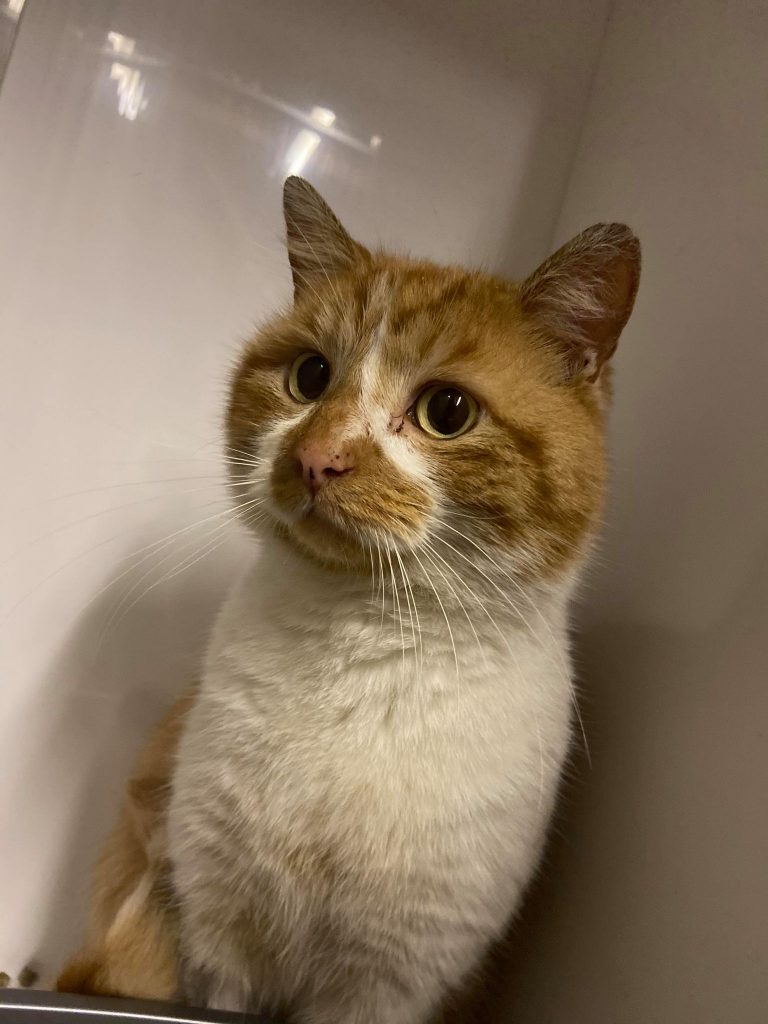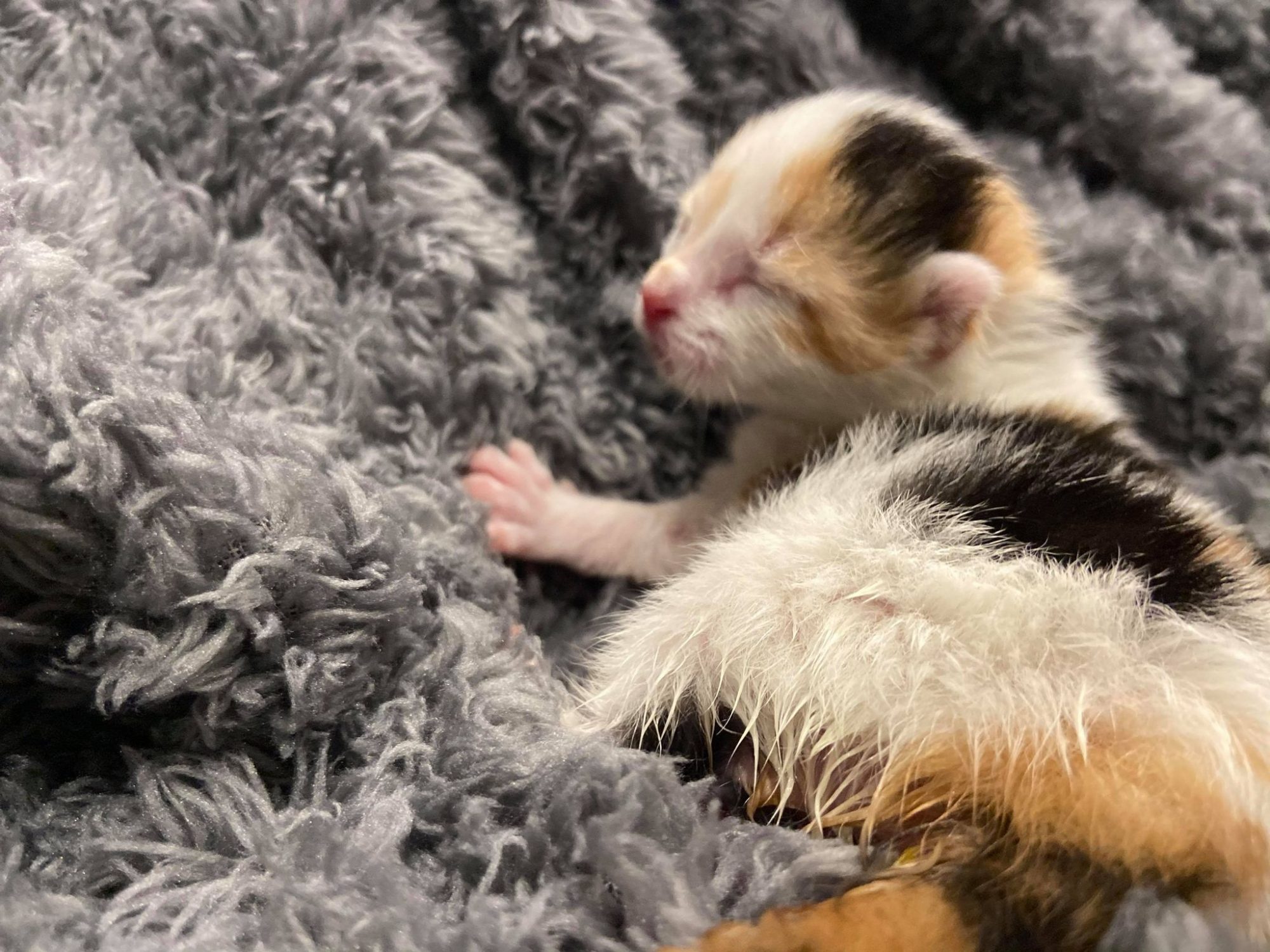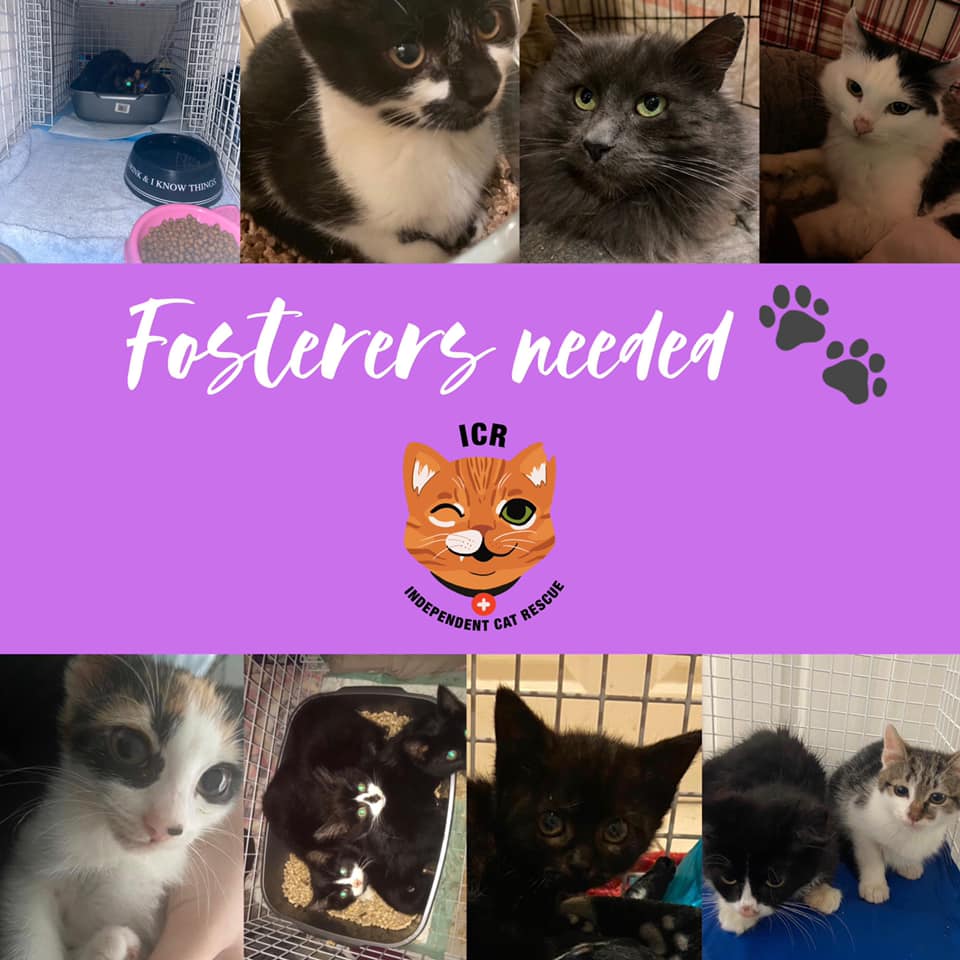During the coronavirus lockdown, rescue cats have been a comfort to so many people, providing companionship and cuddles to help get us through the time we have to spend isolated from other human beings.
However, sadly, not all cats have spent this last lockdown snuggled up in a warm house – in fact, as many as nine million cats across the UK are living outside as strays or in feral cat colonies.

That is where people like Barbara Franks, 47, and her daughter Ashlea, who is just 16, come in. Together, they founded Independent Cat Rescue, a charity that works across Salford and Greater Manchester to rescue, rehabilitate, and find forever homes for the region’s unwanted moggies.
As is often the case with cats, Barbara didn’t find the cats that needed her; rather, the cats found her.
She said: “We were going to adopt two cats as family pets from a litter of four. When we got there, I realised I couldn’t bear to split them up, and so we ended up with all four and it just grew from there.”
Now, the rescue has more than 30 cats, who are split between Barbara’s house and two foster homes.
Because Independent Cat Rescue is a much smaller operation than charities such as the RSPCA and Cats Protection, the connection and involvement they have with each cat who comes through their doors is so much greater.
Barbara explained: “When someone adopts a cat from us, we know so much more about their background. It’s impossible to know everything a cat has been through of course, but we are able to give people more of their cat’s story, which people always like to know.”

As well as this, Independent Cat Rescue is also able to focus on helping those cats who often get overlooked by other organisations.
Barbara said: “We also look after feral cats as well, which lots of rescues won’t do. Some of them are able to be rehomed as pets – we had a lovely big boy come in recently as a feral, and he’s now such a loving boy. But for the ones that won’t be happy in a house, we spay and neuter them, and then release them in a safe location as part of a controlled feral colony.”
The coronavirus pandemic has posed some issues for Barbara and Ashlea. Barbara commented: “We’ve been busier than we ever have been. A lot of people got kittens in the first lockdown, and are now dumping them. So, we’re trying to tackle that and get as many of the females spayed as we can before they get pregnant, because otherwise you end up with kittens having kittens, which is very dangerous for them.
“In the first lockdown, it was very hard to get any cats neutered or spayed, unless they had an underlying condition so they could go in to be treated for that and then be neutered at the same time. But now, our vets are amazing, and they’ll always save me some spaces each week to be able to get our cats neutered. So, this lockdown hasn’t been as hard as the first one.”
For Ashlea, the strain on the rescue’s income has also been severe: “Financially it’s not been great, I have to say, with regards to donations and things.”
Barbara also added: “Occasionally, if he get a really poorly cat that needs urgent treatment, we will try and do a Facebook fundraiser or set up a GoFundMe page. We never get the full amount, but it helps, because we’re basically self-funded. People have also made us some lovely hampers that we raffle off, and occasionally we’ll do scratch cards to try and get some funding in. We made calendars too with pictures of our cats that we had rehomed, which were really nice for people to have.”

Despite the strain that lockdown has had on the rescue, Barbara and Ashlea are still determined to do the utmost to help the cats in their care find loving forever homes.
Barbara said: “We make sure that, when we are rehoming each of our cats, we match them with a home that is right for that individual cat. We run home checks on each of our adoptees, and we also offer a trial period before any cat is officially rehomed. This means the cat has time to get used to their new surroundings and it helps them settle much more quickly.
“The most important thing I would say to people before they adopt a cat is to be sure that you are ready for the commitment. Make sure you can afford to get them neutered and microchipped, and that you are prepared to give them all the love and care that they deserve.”
To help Barbara and Ashlea and the cats and kittens in their care, Independent Cat Rescue has an Amazon wishlist which contains all the items needed most. It also has a PayPal account for direct donations, and regular raffles on its Facebook page, which has all the information on how to support the rescue.
As other Salford-based rescues have done previously, the pair are also currently looking for experienced fosterers to help take care of their feral cats – details can be found here.
















Recent Comments